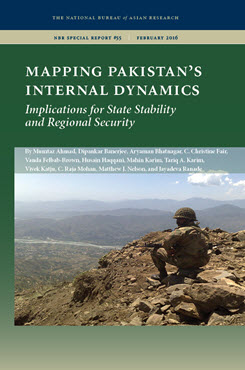Pakistan's Internal Security Environment
This essay diachronically analyzes data on political violence in Pakistan to demonstrate the historical nature of the problem; provides a brief discussion of the most important violent groups; discusses the various obstacles that will prevent Pakistan from undertaking the necessary reforms to secure its citizens; and concludes with a discussion of the policy implications that derive from this analysis.
EXECUTIVE SUMMARY
MAIN ARGUMENT
Pakistan has long been beset by ethno-nationalist, communal, political, and Islamist violence. Much of this violence stems from the state’s failure to develop an inclusive form of nationalism and concomitant strategy of state building. Specifically, Pakistan’s insistence on the fundamentally communal and exclusionary “two-nation theory” as its national ideology resulted in the loss of East Pakistan and encourages ever more narrow definitions of who is suitably “Muslim” for Pakistan. At the same time, Pakistan’s security institutions have instrumentalized a menagerie of Islamist militants to prosecute its internal as well as external policies with respect to India and Afghanistan. Since 2001, many of these erstwhile proxies have turned their guns and suicide devices on the state and its citizenry under the banner of the Pakistani Taliban. A lack of both will and capacity hinder the state’s ability to effectively confront this threat and secure its population. Most problematically, Pakistan still wants to nurture some militants who are its assets while eliminating those who fight the state. Civilians also lack the ability, will, or vision to force the security forces to change tactics.
POLICY IMPLICATIONS
- Pakistan is unlikely to abandon its national ideology or reconsider notions of state building that may persuade providers of violence to put down their arms.
- Pakistan is also unlikely to be able to improve the capabilities of the varied institutions tasked with internal security and rule of law due to political constraints and civil-military imbalances.
- As a result, Pakistan will become ever more dangerous, mostly for its own citizenry. Pakistan’s Shia, Ahmedi, and even Barelvis will be most at risk, as well as the small numbers of non-Muslims.
C. Christine Fair is an Associate Professor at Georgetown University.


